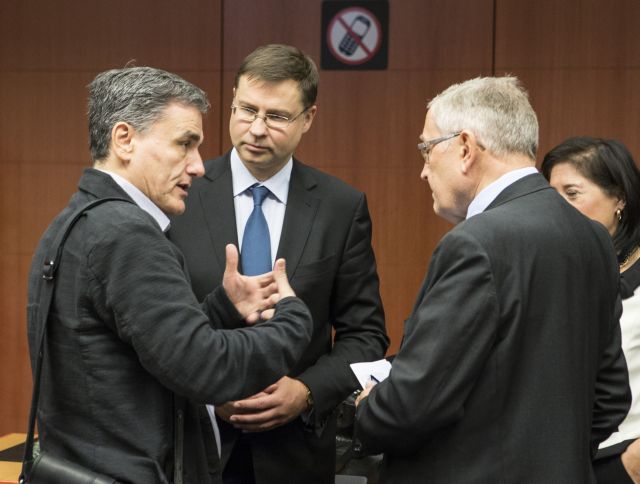Following Monday’s Eurogroup meeting, the head of the Eurogroup Jeroen Dijsselbloem announced that the talks between Greece and institutions continue in Athens as part of the second program review and progress is being made.
“The second review is ongoing. Cooperation between the institutions and the Greek authorities is reported to be fruitful, progress is being made. It is in everyone’s interest to finalize the second review as soon as possible” he told journalists during a joint press conference with the European Commissioner for Economic and Monetary Affairs, Pierre Moscovici and head of the European Stability Mechanism Klaus Regling.
Mr. Dijsselbloem revealed that the next Eurogroup on 5 December will discuss possible short-term debt relief measures with the ESM and the important reforms that are part of it – such as labor market and social system reforms, as well as the fiscal trajectory for 2017 and 2018. The Eurogroup head argued this must take place before the end of the year, when the IMF’s board is expected to decide on Greece. European Commissioner Moscovici noted that the institutions’ mission chiefs will return to Athens next week to continue negotiations on the business environment and the modernization of public administration.
“We do not want to minimize the complexity of what remains on the table but I’m quite confident that a good agreement can be found relatively quickly” he said, while announcing a visit to Athens at the end of November. “If we do that, it sends a strong signal of stability and confidence for the next year which is when growth will recover in Greece as our coming forecasts we expect will confirm” he said.
On his behalf the ESM chief Klaus Regling said there’s been progress in preparing those measures but have not been completed yet, adding that once they are implemented, they will have a positive result on Greek debt sustainability. “It is too early to talk about any details but we’ve made good progress” he said. “It is important to say that some of these measures means there could be additional cost upfront before one can have benefits later on … but then there should be savings in the longer-term. I’m optimistic that overall we can find solutions that will really have a visible, positive impact on Greek debt sustainability” he added.





